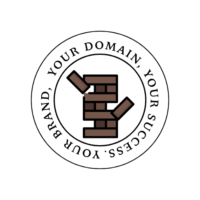Website Security
- What it is: Website security refers to the measures and practices implemented to protect a website and its data from cyber threats. This includes safeguarding sensitive information, preventing unauthorized access, and ensuring the website’s availability and integrity.
- Why it’s important:
- Data Protection: Protects sensitive data like customer information, financial details, and intellectual property from theft or misuse.
- Brand Reputation: A secure website builds trust with visitors, enhancing your brand’s credibility and reliability.
- Legal Compliance: Many industries have regulations (like GDPR and CCPA) requiring businesses to protect user data.
- Financial Losses: Data breaches can lead to significant financial losses due to fines, legal costs, and the impact on revenue.
- Website Availability: A secure website is less likely to experience downtime or disruptions caused by attacks, ensuring continuous service to your customers.
Domain Security
- What it is: Domain security focuses on protecting your domain name from cyber threats, ensuring its control remains in your hands.
- Why it’s important:
- Domain Hijacking Prevention: Prevents attackers from taking control of your domain name, redirecting traffic to malicious sites, or using it for phishing attacks.
- Brand Protection: Maintains control over your online identity and prevents attackers from tarnishing your brand’s reputation.
- Business Continuity: Ensures uninterrupted access to your website and online services.
Key Security Measures
- SSL/TLS Certificates: Encrypt data transmitted between your website and visitors’ browsers, protecting sensitive information.
- Strong Passwords and Two-Factor Authentication: Enhance account security for website administrators and domain registrars.
- Regular Security Audits and Penetration Testing: Identify and address vulnerabilities in your website and systems.
- Website Application Firewall (WAF): Protects your website from common web attacks like SQL injection and cross-site scripting.
- Content Delivery Network (CDN): Improves website performance and can provide additional security layers like DDoS protection.
- Regular Software Updates: Keep website software, plugins, and themes updated to patch security vulnerabilities.
- Employee Training: Educate employees about cybersecurity best practices to minimize the risk of human error.
By prioritizing website and domain security, you can protect your business, your customers, and your online reputation.
